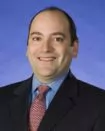Last month, the United States Supreme Court issued its highly-anticipated opinion in Omnicare, Inc. v. Laborers Dist. Council Constr. Indus. Pension Fund, No. 13-435, slip op. (Mar. 24, 2015), in which it held that issuers can be held liable under Section 11 of the Securities Act of 1933 for: (i) false and misleading statements of opinion only where the speaker did not actually believe the statement to be true when made; and (ii) omissions of material facts about the factual basis for a statement of opinion if those omitted facts would conflict with what a "reasonable investor" would take from the statement itself. The Supreme Court also addressed the pleading standards applicable to Section 11 claims involving allegedly false opinions. At issue in Omnicare were two statements in a registration statement in which the issuer expressed its opinion that it was in compliance with federal and state laws.1 Two pension funds that purchased Omnicare stock sued the issuer under Section 11, alleging that Omnicare made "materially false" representations about legal compliance and "omitted to state material facts necessary" to make its representations not misleading.2 The district court granted Omnicare's motion to dismiss and the Sixth Circuit reversed.3 The Sixth Circuit held that a statement of opinion that is ultimately found incorrect, even if sincerely believed at the time it was made, may count as an "untrue statement of a material fact."4
The Supreme Court, in a majority opinion authored by Justice Kagan,5 vacated the Sixth Circuit's decision and remanded the case for further proceedings.6 The Supreme Court divided its analysis into two parts, based on the two provisions of Section 11. The first part of its analysis related to the portion of Section 11 prohibiting issuers and their corporate officials from making "untrue statements of . . . material fact," while the second part considered the portion of Section 11 prohibiting issuers from omitting statements of material fact "necessary to make the statements not misleading."
Under the portion of Section 11 making issuers and corporate officials liable for "untrue statement[s] of . . . material fact," the plaintiffs argued that Omnicare's statement that it believed it was in compliance with federal law was in violation of Section 11 because it ultimately proved untrue.7 The Supreme Court, however, disagreed.8 It held that liability under the false statement portion of Section 11 attaches to statements of pure opinion only where the speaker did not actually hold the stated belief.9 "[A] sincere statement of pure opinion is not an 'untrue statement of material fact,' regardless whether an investor can ultimately prove the belief wrong."10 In other words, liability is appropriate if the issuer did not sincerely hold the belief, but Section 11 is not intended to be "an invitation to Monday morning quarterback an issuer's opinions."11
The Supreme Court also analyzed the claims under the omissions portion of Section 11. Here, the Supreme Court noted that "whether a statement is 'misleading' depends on the perspective of a reasonable investor."12 Thus, the question is "when, if ever, the omission of a fact can make a statement of opinion like Omnicare's, even if literally accurate, misleading to an ordinary investor."13 The Supreme Court answered that, depending on the circumstances, a reasonable investor may understand a statement of opinion to convey facts about the speaker's basis for forming the opinion14.Thus, "if the real facts are otherwise, but not provided, the opinion statement will mislead its audience" and give rise to Section 11 liability.15 In other words, "if a registration statement omits material facts about the issuer's inquiry into or knowledge concerning a statement of opinion, and if those facts conflict with what a reasonable investor would take from the statement itself, then [Section] 11's omission clause creates liability."16
The Supreme Court clarified, however, that an opinion is not necessarily misleading where an issuer knows, but fails to disclose, facts "cutting the other way."17It explained that "[r]easonable investors understand that opinions sometimes rest on a weighing of competing facts" and that the "presence of such facts is one reason why an issuer may frame a statement as an opinion."18 As a result, "whether an omission makes an expression of opinion misleading always depends on context."19
The Supreme Court also addressed the pleading standard that plaintiffs must satisfy in connection with Section 11 liability claims based on statements of opinion. Specifically, the Supreme Court held that "an investor cannot state a claim [under Section 11] by alleging only that an opinion was wrong; the complaint must as well call into question the issuer's basis for offering the opinion."20 Moreover, an investor "must identify particular (and material) facts going to the basis for the issuer's opinion – facts about the inquiry the issuer did or did not conduct or the knowledge it did or did not have – whose omission makes the opinion statement at issue misleading to a reasonable person reading the statement fairly and in context."21
Accordingly, the Supreme Court remanded the case to the Sixth Circuit for a determination of whether the plaintiffs stated a viable omissions claim.22 The case is currently pending before the Sixth Circuit.
The Supreme Court's ruling appears to offer various grounds for the early dismissal of Section 11 claims based on allegedly false opinions. Issuers should celebrate the Supreme Court's holding that statements of opinion must be subjectively false in order to give rise to liability for an untrue statement of material fact. The Supreme Court's "reasonable investor" standard, however, appears to leave open the possibility that even sincerely held opinions may give rise to omission liability under Section 11.23 Nevertheless, due to the high pleading standard the Supreme Court imposed on investors bringing suit under Section 11, it may be difficult for investors to assert claims even under the "reasonable investor" standard. Although the Omnicare decision is less than a month old, it is already having an impact on pending Section 11 claims. For example, on March 30, 2015, the United States Supreme Court vacated the Second Circuit's decision in Freidus v. ING Groep N.V., and remanded the case for further consideration in light of Omnicare.24 The Second Circuit previously had affirmed the dismissal of claims based on certain opinions regarding asset quality that allegedly omitted material information regarding the assets. Consistent with its prior holdings, the Second Circuit held that statements of opinion – including in claims involving alleged omissions – were actionable "only to the extent that the statement was both objectively false and disbelieved by the defendant at the time it was expressed."25 Issuers and investors should monitor Friedus on remand, as the Second Circuit likely will have to determine whether Omnicare conflicts with the standard previously established by the Second Circuit and, if so, whether the conflict may dictate a different result in Friedus.
Other courts have relied on Omnicare to dismiss claims asserted under Sections 10(b) and 18 of the Securities Exchange Act of 1934. On March 31, 2015, the District Court for the Southern District of New York relied on Omnicare'srequirement that statements of opinion must be subjectively false in order to be actionable in dismissing with prejudice claims asserted under Sections 10(b) and 18 of the Securities Exchange Act of 1934.26 Also on March 31, 2015, the District Court for the District of Massachusetts relied on Omnicare in dismissing a Section 10(b) claim based on allegedly false opinions.27 Subsequently, on April 7, 2015, the Tenth Circuit relied on Omnicare in affirming the dismissal of Section 10(b) claims where none of the plaintiff's allegations indicated that the defendants would have known that certain of their opinions would be misleading and the allegations did not "cast doubt on the sincerity or reasonableness" of certain statements of opinion.28
The Supreme Court's remand in Freidus and apparent expansion by courts of the holding in Omnicare to claims asserted under Sections 10(b) and 18 of the Securities Exchange Act of 1934 indicate that Omnicare could have a substantial impact on the overall landscape of securities litigation.
Footnotes
1Omnicare, No. 13-435 at *9 (the two statements at issue were: (1) "We believe our contract arrangement with other healthcare providers, our pharmaceutical suppliers and our pharmacy practices are in compliance with applicable federal and state laws;" and (2) "We believe that our contracts with pharmaceutical manufacturers are legally and economically valid arrangements that bring value to the healthcare system and the patients we serve.").
2Id.
3Id. at *10.
4Ind. State Dist. Council v. Omnicare, Inc., 719 F.3d 498, 505 (6th Cir. 2013).
5 Justice Scalia concurred in part and concurred in the judgment. Justice Thomas concurred in the judgment.
6Omnicare,No. 13-435, at *11.
7Id. at *13.
8Id.
9Id. at *15-*16.
10Id. at *19.
11 Id.
12Id.
13Id. at *20.
14Id. at *21-*22.
15Id. at *22.
16Id. at *23.
17Id. at *25.
18Id.
19Id. at *26.
20Id. at *33.
21Id. at *34.
22Id. at *35.
23 The "reasonable investor" standard also appears to be more favorable to plaintiffs than previous standards applied by various federal district courts and circuit courts. See, e.g., Thomas B. Bosch & Natalie D. Sacha, A Matter of Opinion: Courts Require Section 11 and 12 Claims Based on Allegedly False or Misleading Opinions to Satisfy Rule 9(b), dritoday (Dec. 30, 2011), http://dritoday.org/feature.aspx?id=249 .
24Freidus v. ING Groep N.V., No. 13-1505, slip op. (Mar. 30, 2015).
25Freidus v. ING Groep, N.V., 543 F. App'x 93, 95 (2d Cir. 2013).
26Special Situations Fund III QP, L.P. v. Deloitte Touche Tohmatsu CPA, Ltd., No. 13-civ-1094, 2015 U.S. Dist. LEXIS 43323 (S.D.N.Y. Mar. 31, 2015).
27Corban v. Sarepta Therapeutics, Inc., No. 14-civ-10201, 2015 U.S. Dist. LEXIS 42688 (D. Mass. Mar. 31, 2015)
28Nakkhumpun v. Taylor, No. 14-1060, 2015 U.S. App. LEXIS 5547, at *39 (10th Cir. Apr. 7, 2015). Interestingly, the Tenth Circuit relied on Omnicare in analyzing scienter, not the falsity of the opinions at issue. Moreover, the Tenth Circuit held that Omnicare held that "an opinion is considered false if the speaker does not actually or reasonably hold that opinion," which appears to conflate the two prongs of the Omnicare analysis. Id. at *37.
The content of this article is intended to provide a general guide to the subject matter. Specialist advice should be sought about your specific circumstances.




